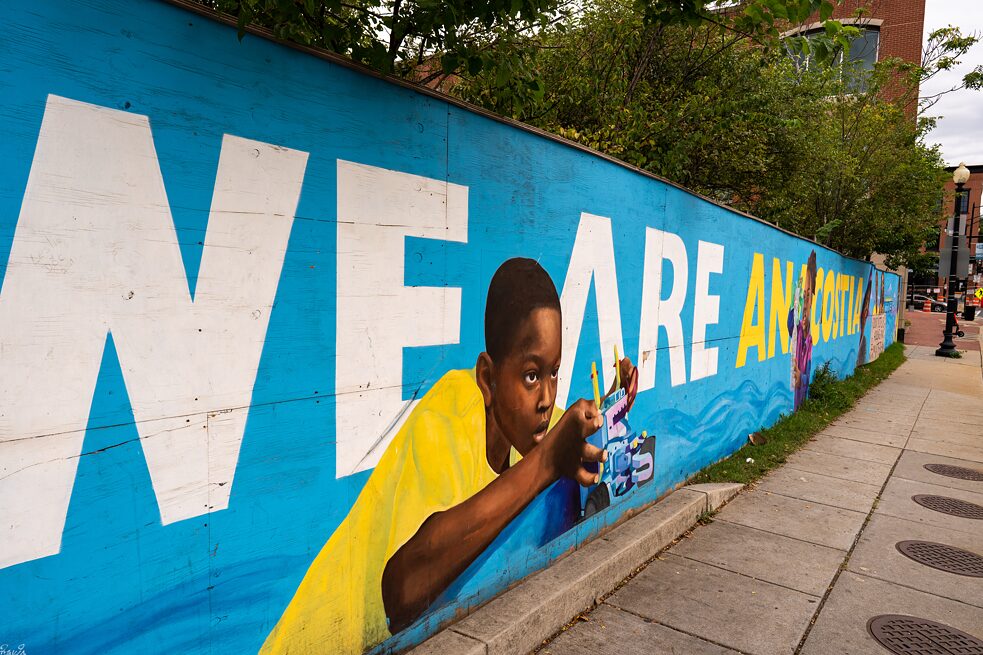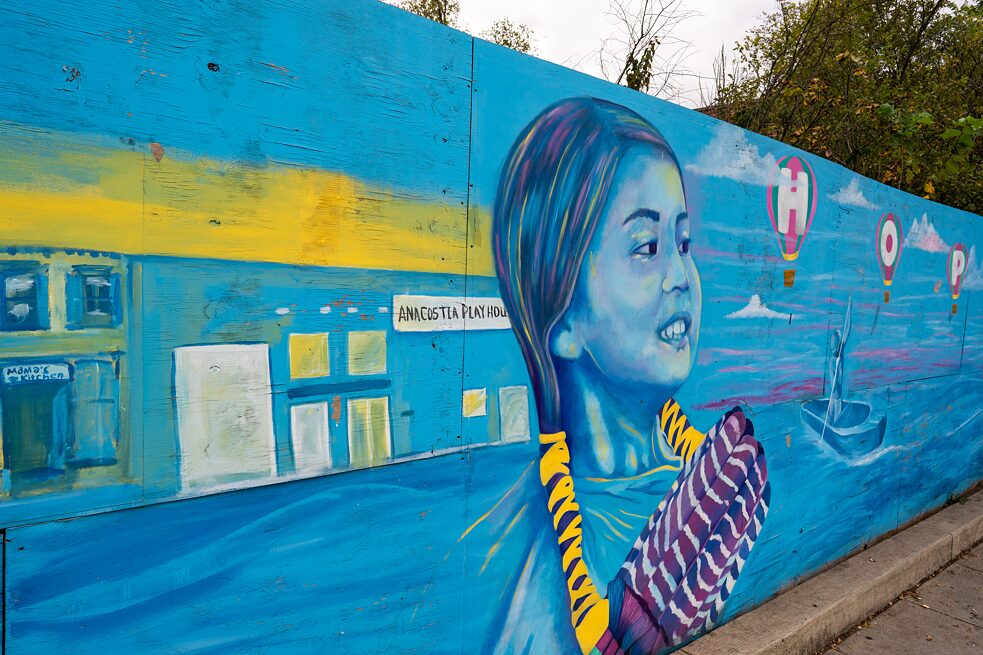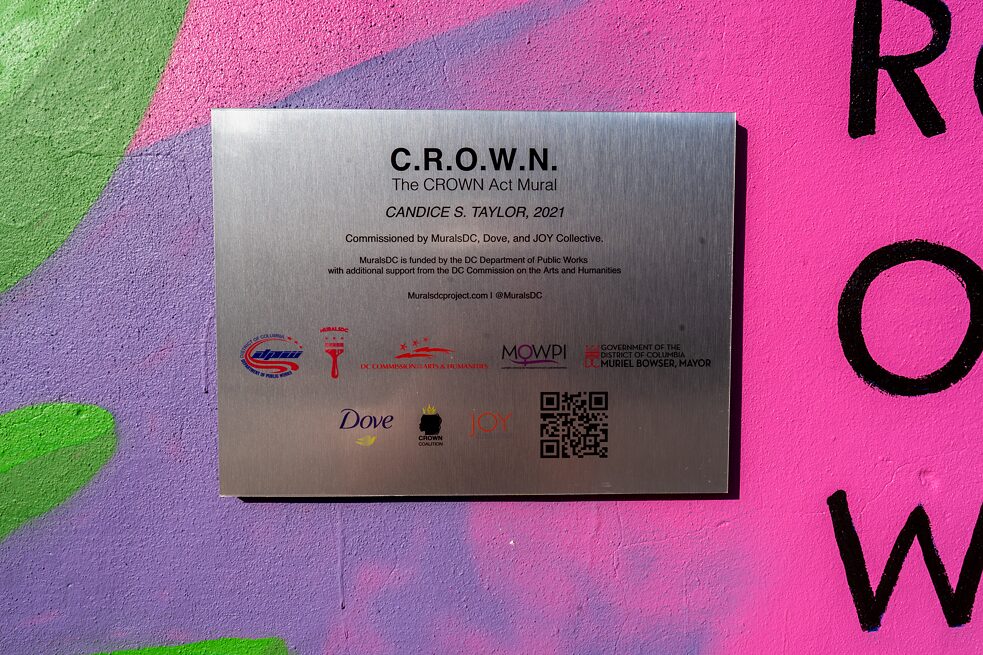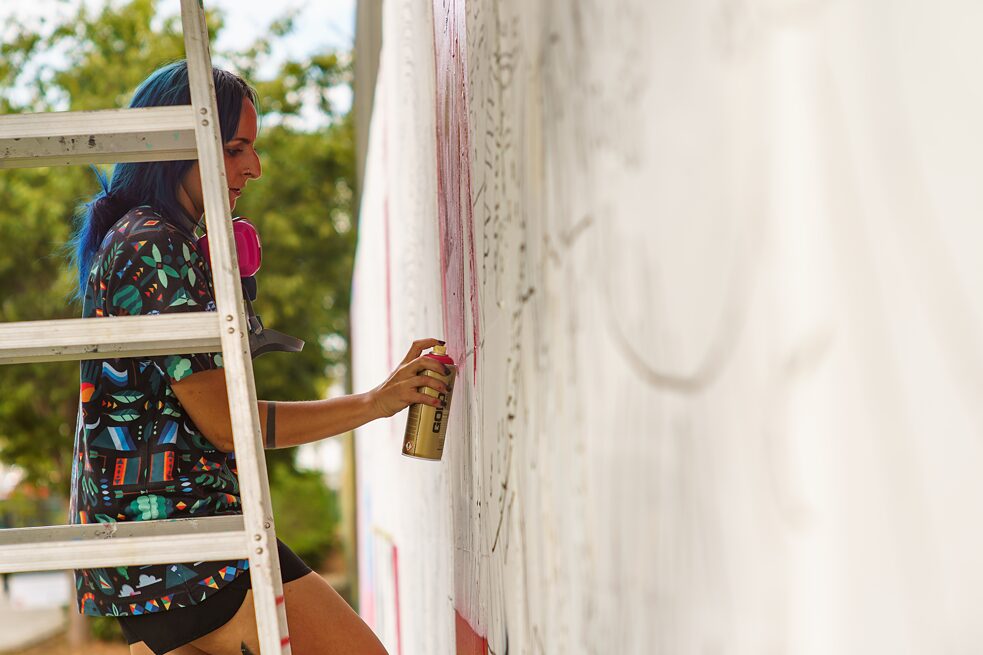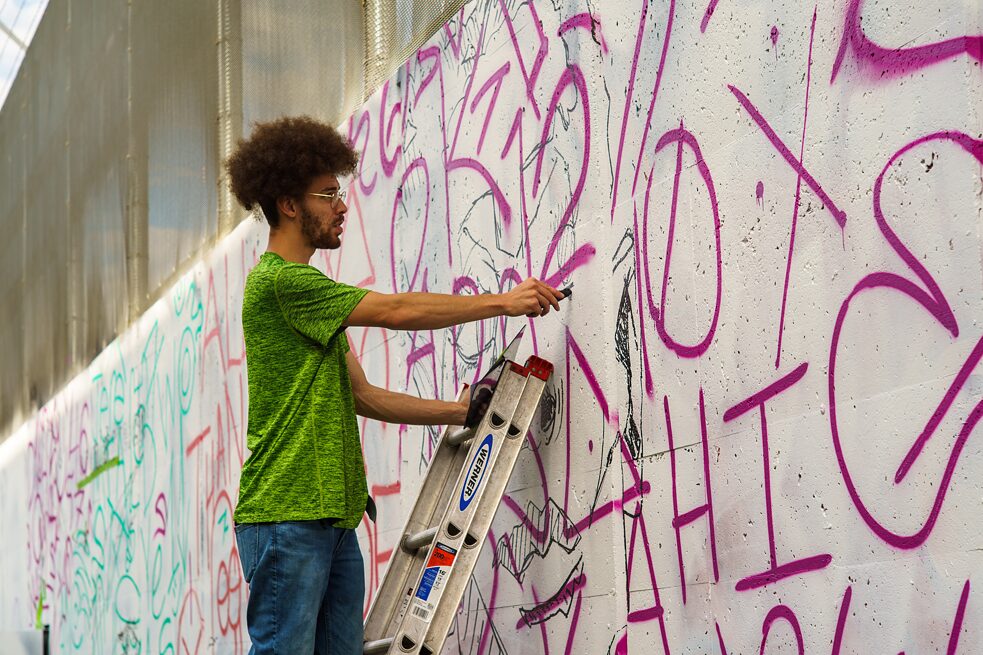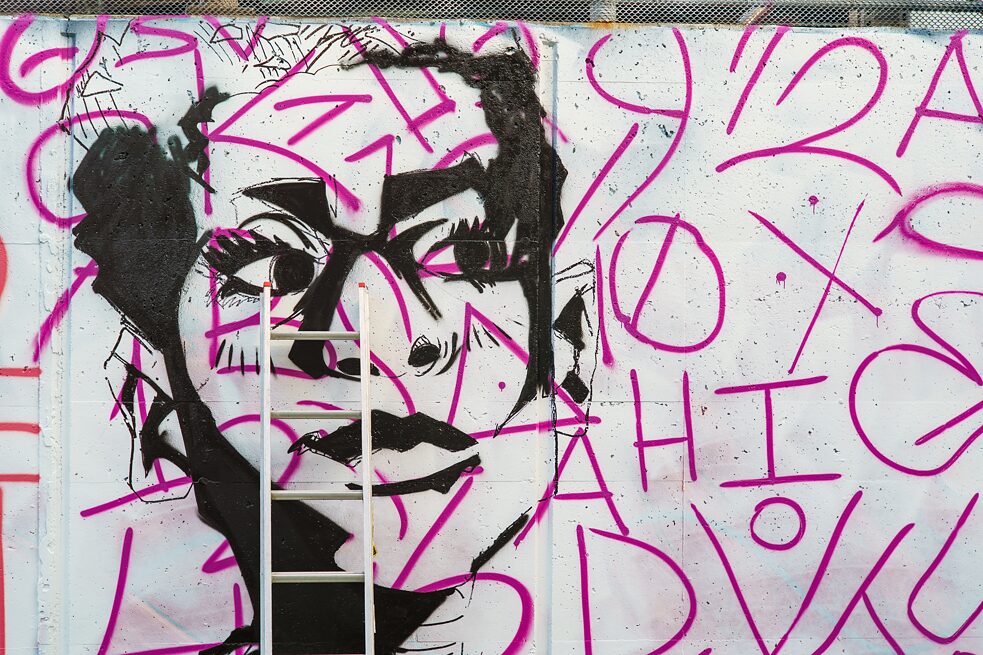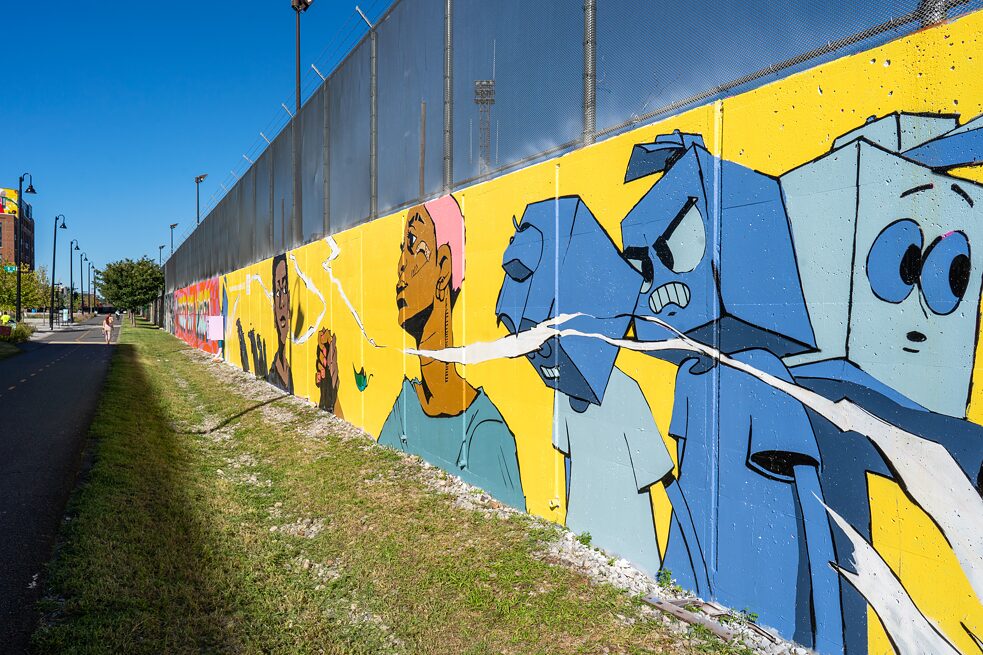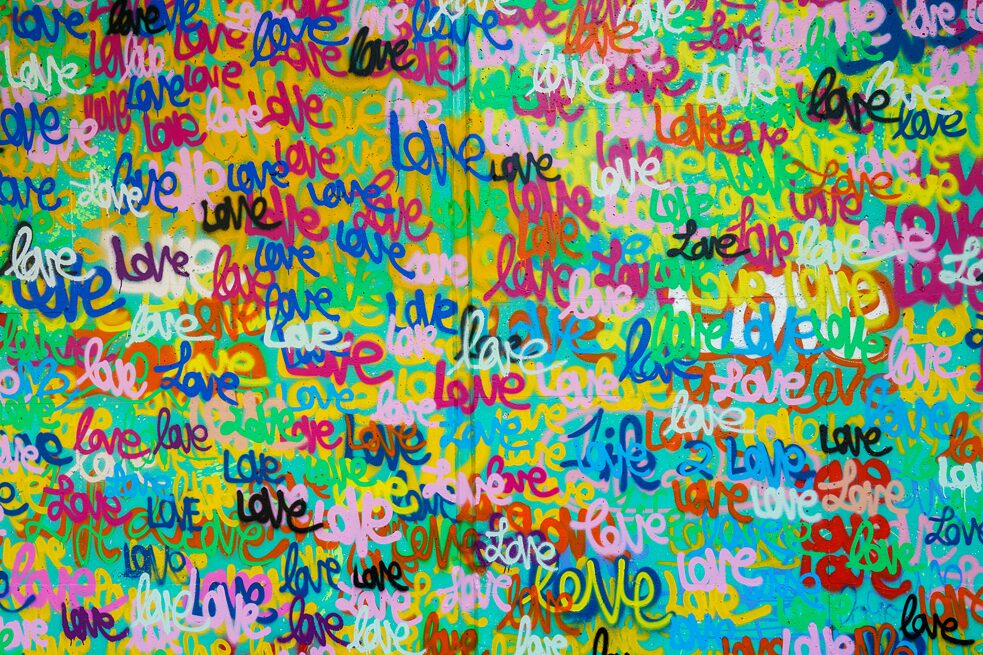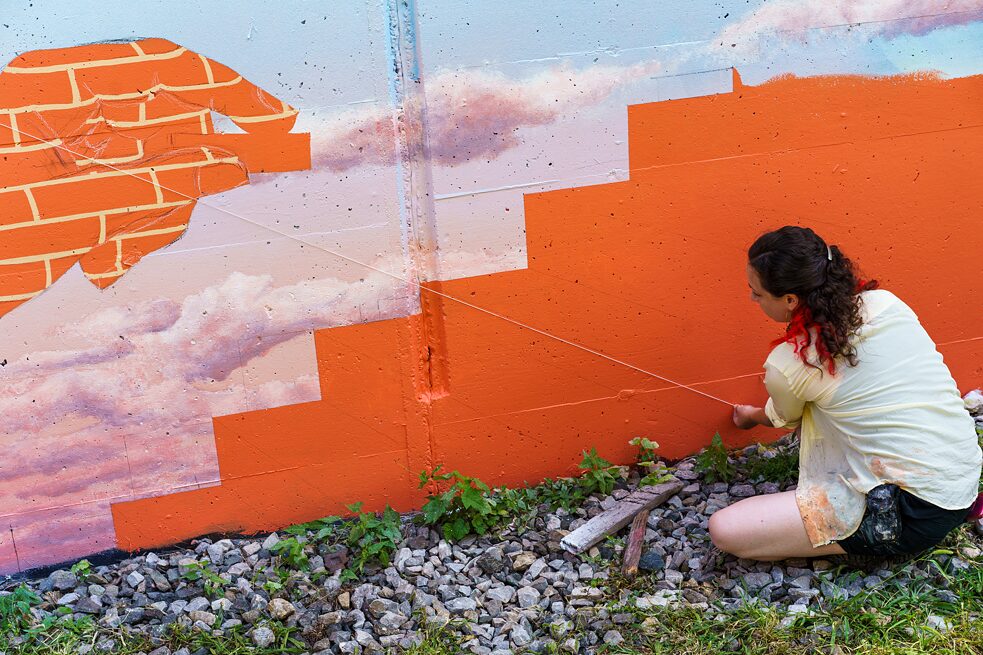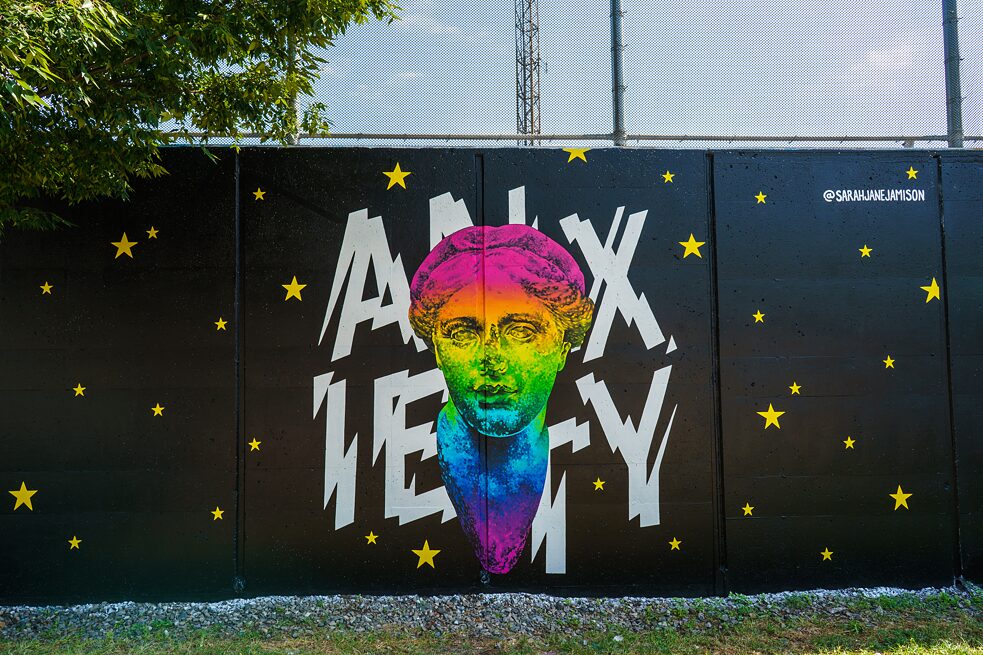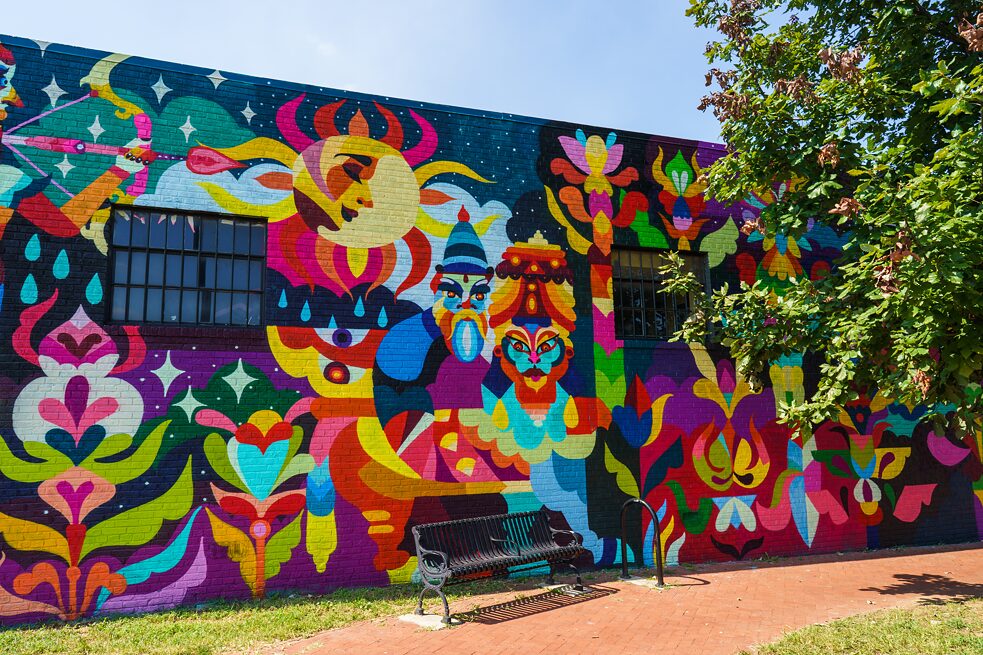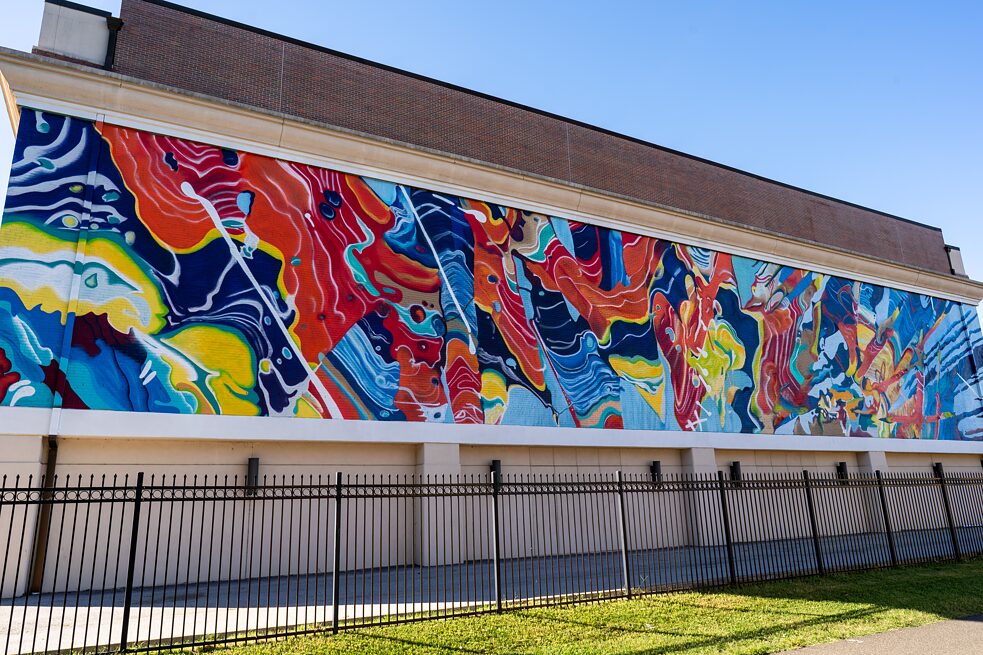More Murals in Washington, DC
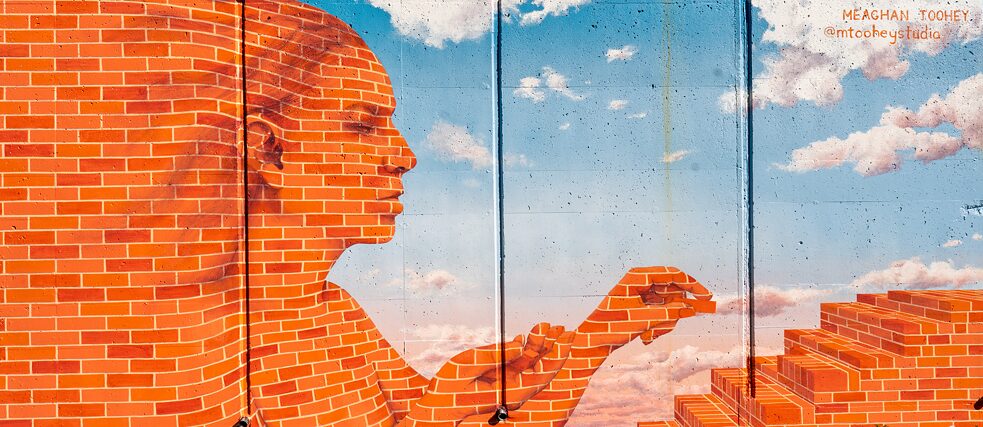 © Meaghan Toohey, Photo: Mike Maguire
© Meaghan Toohey, Photo: Mike Maguire
We Are Anacostia
“We Are Anacostia” is the title of a new, 200-foot-long mural located in the D.C. neighborhood of the same name. The artwork’s title stands prominently in white text and all caps against a sky blue background. It almost seems like an exclamation that needs to be heard: “Here we are — the people of Anacostia! Look at us!” People of different ages appear among the eye-catching words. The artist Luis Peralta Del Valle, who was inspired by Anacostia’s community, portrays residents along a timeline. Children hold pieces of technology alongside historical figures. The artwork also shows a young couple bearing an explicit message: “Don’t mute us. Housing for us matters,” reads the poster in front of them. “We Are Anacostia” also features prominent D.C. citizens like Marion Barry and Frederick Douglass who shaped Anacostia’s history. The piece takes its viewers on a journey back in time, demonstrating that the community has long called attention to critical issues about social justice and affordable housing — and they are still waiting for a solution.
Lifting as We Climb
 “Lifting as We climb” by Cita Sadeli, aka Miss Chelove
| © Cita Sadeli aka Miss Chelove, Photo: Mike Maguire
“Lifting as We climb” by Cita Sadeli, aka Miss Chelove
| © Cita Sadeli aka Miss Chelove, Photo: Mike Maguire
The new street art in D.C.’s Ward 8, on the other hand, is dedicated to a completely different topic. The mural celebrates the 100th anniversary of women’s suffrage with an installation of three paintings created by three women of color. The artists used purple and gold, the colors of the Women’s Suffrage Movement, for the piece. But this scene depicts more than meets the eye — it acknowledges that the 19th Amendment allowed white women to vote beginning in 1920, but Black women continued to face obstacles for years to come. Although women of color were part of the movement, many only received the right to vote in 1965 when President Lyndon B. Johnson signed the Voting Rights Act into law. According to The Washington Post, people of color still experience difficulties voting today due to hindrances like long lines and wait times at polling stations.
CROWN Act
Ever heard of the CROWN Act? The law was created in 2019 to end hair discrimination in the United States in the workplace and public schools. While it seems unbelievable that a law like this needs to exist at all, it has met resistance and only passed in 13 states thus far. Under the CROWN Act, the law guarantees the protection of different hair textures and styles, including braids, curls, twists, and knots. This is exactly what the mural “CROWN Act” by Candice Taylor is all about. The artwork is located at Busboys and Poets in Anacostia, a company built largely by Black women who also make up a considerable portion of the business’s workforce. The portrait clearly illustrates that these hairstyles do not hinder professional performance. Nonetheless, Black bodies and hairstyles have experienced highly problematic discrimination in many institutions across the United States, both historically and in the present day.
Go-Go City
 © Kaliq Crosby, Photo: Mike Maguire
One of the most colorful pieces of street art in the city resides in the Shaw neighborhood, where a battle over music and culture once brewed. It pays homage to the Junk Yard Band, the Soul Searchers, and other legendary groups that helped create go-go music and the culture that goes along with it. Artist Kaliq Crosby sprayed this creation on the wall of an expensive mixed-use building located across the street from a shop known for blasting go-go music. The mural is the response to an alleged noise complaint from a resident. This conflict triggered a whole social movement. On several evenings, residents gathered to protest and dance — to go-go music, of course. According to the organizers, a petition to bring the music back received more than 80,000 signatures from 94 countries and all 50 states. Many saw the complaint as a result of newcomers crowding out native Washingtonians and suppressing the local culture.
© Kaliq Crosby, Photo: Mike Maguire
One of the most colorful pieces of street art in the city resides in the Shaw neighborhood, where a battle over music and culture once brewed. It pays homage to the Junk Yard Band, the Soul Searchers, and other legendary groups that helped create go-go music and the culture that goes along with it. Artist Kaliq Crosby sprayed this creation on the wall of an expensive mixed-use building located across the street from a shop known for blasting go-go music. The mural is the response to an alleged noise complaint from a resident. This conflict triggered a whole social movement. On several evenings, residents gathered to protest and dance — to go-go music, of course. According to the organizers, a petition to bring the music back received more than 80,000 signatures from 94 countries and all 50 states. Many saw the complaint as a result of newcomers crowding out native Washingtonians and suppressing the local culture.
D.C. Walls Festival
The street art festival D.C. Walls, which took place for the sixth time in September 2021, attracts local, national, and international artists to the U.S. capital to celebrate an array of new and diverse outdoor murals. One highlight of the 2021 festival was Venezuelan-American artist Ally Grimm’s work. Grimm, known as A.L. Grime in the street art community, hails from Denver and explores the rise of the digital age through the lens of human experience in her art. She cites electronic music as a major source of artistic inspiration. She translates the energy and movement of a crowded dance floor into flowing lines and patterns in her lively murals.


